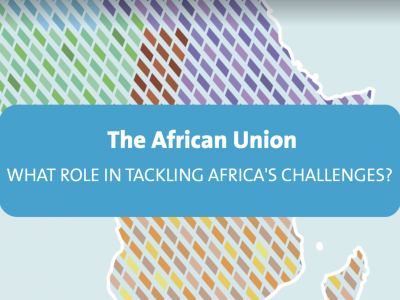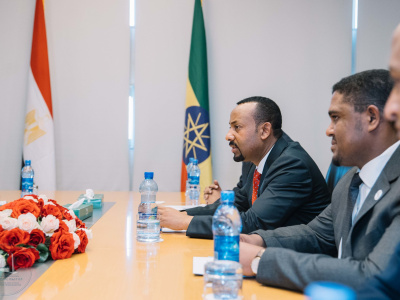
What is left for civil activism in Tunisia?
Civil activism in Tunisia stands as a beacon of hope in a region marred by conflict and resurgent authoritarianism. Indeed, civil society has played a critical role in Tunisia’s transition to democracy. However, a controversial new NGO law sends worrying signals, threatening to undermine confidence in the country’s political transition process.
Civil activism has taken different turns in various contexts of political transition. In the Arab countries where uprisings have taken place, civil society suffered severe backlash from forces aiming to restore dictatorship, while also confronting the dangers of scission, armed conflict and foreign interference. These kinds of threats have left the fates of Libya and Syria hanging in the balance. In Egypt, the political transition turned against the people, with the executive becoming a powerful repressive force targeting all political and apolitical opponents.
Tough reform measures are at the heart of any post-revolution transition. Political and institutional changes need to be put into place. Modern forms of social and economic development have to be identified and stimulated, and protection of rights and liberties must be instituted, with infringements ceased. These daunting choices cannot be pushed forward without the power of civil activism. It is therefore crucial to look at whether civil actors remain involved in the public sphere post-revolution, and to define their means of intervention.
What obstacles does civic activism face in Tunisia today?
Tunisia has an active civil society working on many topics related to the country’s democratic transition. Civil society does, however, confront several obstacles. These have intensified since the 2014 elections, which altered the political scene by bringing many symbols of the former Ben Ali regime back to the surface.
One major obstacle for an effective civil activism before the revolution was the tendency for civil associations to amalgamate with government. Most civil society actors were pro-Ben Ali before 2011, and most former ministers and officials benefited from a reconciliation law that the head of the state introduced in the summer of 2015. Widespread concern about this law has been expressed from within society. Many fear that it will lead to impunity and derail the process of transitional justice. Orderly implementation of the transitional justice process is considered an essential step towards reconciling with the past by revealing the truth about the dictatorship and giving redress to its victims.
Another obstacle to civil activism is its own developmental path, especially after the May 2018 local elections. Voters looking for fresh faces in power turned to civil associations as an alternative to political parties. This shift seems important in any discussion of the role of civil actors in the post-revolution state. It is legitimate to ask whether there has been a change in the role of civic bodies. Perhaps civic activism is becoming a first step to entering political life, which could compromise its cause-defending role. Of course, this does not mean that civic activism must be devoid of political intent; the line between political commitment and political interest remains a blurred one.
Finally, the government has taken some political steps to close the space for civil society associations. In July 2018, the parliament enacted a new law that adds new registration procedures for non-profit organisations to register and provide various data on their staff and funding. Among other things, the bill introduces penalties that can be considered abusive, including incarceration. Also it confounds associations (non-profits) with companies (commercial entities). Both must now comply with the same rules of oversight aimed at countering money laundering and terrorism financing. The latter is up for review before the parliament and it contains modifications that can threaten the liberal nature of associations’ legal framework.
The new requirements imposed by the new law are at odds with freedom of association and the public interest. Such requirements and restrictions need to be openly discussed with civil society. Civil activism cannot be subsumed under commercial activity, as this denies its very nature and role and is likely to undermine its growth and effectiveness.
Can civil activism nonetheless play a constructive role in pushing for democracy and socio-economic development?
No one can deny the key role that was played by civil society in the constituent process in Tunisia. Nor can we ignore the great impact it has had in safeguarding social values such as the participatory approach and inclusion of civil society in the policymaking process (these are explicitly stated in the preamble of the Tunisian constitution). Civil society actors also played crucial roles in constitutionalising various principles related to affirmative action and broadening the rights of second generation rights to include access to education, health care and water.
These key achievements made Tunisian civil society more powerful today than it was before 2011. Civil society associations are now enmeshed in law-making and consultative processes, and they have become instrumental in some governmental institutions as well. Yet, we cannot forget the need for civil society to maintain its position as a defendant of public values and democracy. Its presence in that capacity is crucial, even for government. But how should the government approach this new configuration?
The government needs to play at least two roles with regard to civil society. First, it should facilitate the work of civil activism and fulfil its mission of control and follow-up without unjust restrictions. Second, the government should maintain a positive view of civil society actors as a force for progress, not as a competitor, and as an opinion-giver, not as a tool of criticism for those outside government.
Fortunately, despite the challenges, civil society actors are gaining the public’s confidence in Tunisia. That confidence can translate into a step towards positive change. Various associations such as ours are working for reforms and supporting processes of social and economic reform. The need for economic development is undeniable, as Tunisia is experiencing harsh times with low economic growth and high debt. Of course, the influence of civil society in these areas is limited to specific actors that can give constructive opinions and communicate them in a way that is accessible to the body politic and public. This is exactly what civil society must do to make the most of its expertise for the common cause. We believe that the continuity of civil society’s achievements depends on how its outputs are processed, both within the association itself and in collaborations with other organisations and by openness to different stakeholders. Joining forces is the only way we can prevent the return of repression.
About Solidar
Solidar Tunisia is a Tunisian non-governmental organisation that aims to promote the principles and values of equity, social justice and equality and contributes to the improvement of public policies by proposing concrete and operational solutions to decision makers. For more info see www.solidar-tunisie.org

Read the full magazine issue








